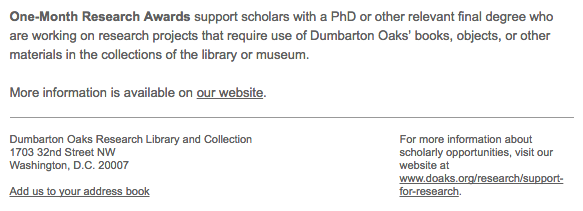American Association of Geographers Conference 2017 Boston, April 5-9
This panel is sponsored by the Political Geography Specialty Group
Following recent calls for critical and feminist human geographers to take demographicchange seriously (Robbins & Smith 2016), we are inviting submissions about the origins of demographic fever dreams and fantasies. We’re interested in the work that they do, the danger that they pose to building solidarity across difference, but also the potential for play and subversion that is embedded in their vivid specificity. Traditionally, critical human geography has overlooked or ignored demographic change, and yet global demographic shifts are animating and inspiring political movements worldwide. Often, these shifts are mobilized in political discourses through specific demographicfantasies to instill anxiety and fear of perceived threats to the success of nations. These fantasies rely on normative ideas of gender, sexual orientation, ethnicity, religious difference, but also invent compelling narrative justifications for those ideas and a means for them to mutate and multiply.
In the 2016 US election cycle, for example, we have recently been privy to a deluge of
dreams and fantasies: a migration-engendered epidemic of “taco trucks on every corner,”
[1] an Obama-sponsored invasion of lesbian farmers to undermine red state agricultural strongholds,
[2] and a “basket of deplorables” containing half of all Trump voters. We describe these as
fever dreams and fantasies because of their
strikingly specific and dream-state features that leap from numerical measures and policy into a surreal and multivalent landscape of threat…or delight.
As we consider the political purpose of these demographic fantasies, the fears underlying them, and how the vivid imagery ties into fears of white masculine decline and panic, we wonder how we can unravel these oddly specific imaginaries. Beyond the US election, we also read an underlying element of demographic fantasy in worries about the presence of burkinis on French beaches, attempts to ban “sharia law” across the southern US and Europe, the rhetoric surrounding the Brexit, and numerous other global cases. In each of these instances, a vivid and fantastic fiction is used by figures with political power to amplify, imagine, and obscure demographic patterns of migration, birth, or mortality to consolidate political power or to dismiss or undermine class tensions and create fictions communities of homogeneity.
While it is easy to be smugly dismissive of fears about an unlikely takeover by “others,” here we hope to more carefully consider the content, deployment, and mechanisms of these vivid demographic imaginaries of threat. In so doing, we hope to build on, but also disrupt and complicate theoretical explorations in feminist political geography, which evoke the embodied life of territory and borders and the political life of demography (among others, Baldwin 2012; Bialasiewicz 2006; Dixon and Marston 2011; Fluri 2014; Gilmartin and Kofman 2004; Gökarıksel and Smith 2016; Jones and Johnson 2016; Massaro and Williams 2013; Pain and Staeheli 2014; Roberts 1998; Robbins and Smith 2016; Silvey 2005; Smith, Swanson, and Gökarıksel 2016; Smith and Vasudevan in progress).
We invite papers exploring demographic fantasies through political speech, popular culture, government policy, or other venues, and engaging with questions such as the following (but not limited to these):
• What political and cultural work do demographic fantasies do, and how do they do it?
• What role do gendered, sexualized, and racialized body politics play indemographic fantasies?
• What are effective responses to demographic fantasies? What is the potential for play and subversion (e.g., the social media responses to taco trucks on every corner, and the “basket of adorables”)?
• How do demographic fever dreams travel across contexts and political lines?
• How do demographic fantasies explicitly or implicitly engage with temporal and metanarratives and geographic imaginaries (such as the dangerous and uncertain future, and porous borders)?
• How might we respond to or understand the flights of demographic fantasy that emerge from rumors, exaggerations, or denials of seemingly incontestable truths? Especially when drawing attention to the fallacy only fuels the fantasy?


